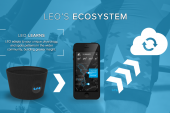
image: mashable.com
Education is hot. VCs and entrepreneurs salivate at the prospects for disruption as they look at the archaic products and old-school business models in an industry that has barely changed in the last 50 years. Why then haven’t we seen any breakout education successes at the same level of consumer media, enterprise software, or even personal fitness?
1. Nobody cares
PrepMe founder Avichal Garg made a strong statement in his blog post last year that resonated with the ed-tech community. He states that the average middle-class American thinks of education as an expense and not an investment because lack of a quality education has no immediate negative impact on a person’s life. Income (supplemented by loans) is often enough for a high school graduate to afford basic amenities like a house, food, and car in middle America. It’s not until layoffs are made, loans need to be paid off, a family member gets sick, or retirement comes around and the 401k is empty that the consequences are felt. Or, in the best case scenario, everything is fine, but the next generation bears the brunt of it by lacking the resources and support needed to land a job in an increasingly competitive labor market. So they settle, and the cycle continues…
2. Your buyers have no budget
In K-12 and university classrooms alike, there are forward-thinking instructors who would do anything to improve the education their students receive. In fact, the average teacher spends about $400 per year out-of-pocket on teaching supplies, for which they are never reimbursed (keep in mind, the average salary for a teacher is $45,000). Shrinking budgets, growing class size and institutions focused on rankings and profit require instructors to discover new tools and pedagogies in spite of their environments rather than with the support of them.
Consumerization of the enterprise works when you’re selling into a profit center (e.g. Salesforce) and your users have expense accounts. Consumerization of education falls down if it requires teachers to spend their own cash, or spend their limited time lobbying their administration for a grant.
3. Long sales cycles and decision-making processes
In addition to shrinking budgets and limited resources, publicly-funded institutions have incredibly rigid budgets and complex processes for allocating those budgets. In theory, this helps ensure that public money is being spent responsibly. The reality is that these long sales cycles kill startups before they can get any traction. Private schools and institutions often have a bit more leeway, but you severely limit your market size if those are your primary customers.
So what do we do?
This seems so hopeless that many startups have decided to completely ignore the existing system and start from scratch. While this may be tempting (and is certainly easier than trying to find a business model that works with or cuts through the bureaucratic red tape), there are far too many established players with significant vested interests in the existing system for education as we know it to realistically crumble even within this generation.
There is another way for ed-tech companies to succeed, though, which I’ll call the “Trojan Horse” strategy, or “Disrupting from Within”. Essentially, this means taking advantage of the existing education infrastructure and teaching pedagogy, while introducing a disruptive idea into the mix. The end-game is still an eventual complete disruption, but you protect yourself from the binary outcome (i.e. even if things take longer to completely turn around, you can still build a wildly successful business).
Here are a couple of examples I like:
Khan Academy. While they’re a non-profit, they’ve taken a very cunning approach to their growth strategy. They could have simply said, “It’s pointless to go to school when you can learn everything you need to from the best teachers in the world for free.” Instead, they embraced the role of the teacher and classmates in self-paced learning and have “flipped the classrooms” of the most forward-thinking instructors.
Udemy. Another company that could have positioned itself as an adversary to traditional learning institutions. Instead, they’ve partnered with leading institutions to help them promote the quality of their teaching more broadly, adding a ton of value to their platform in the process.
More recently, we’ve seen student’s own devices viewed as a potential learning tool rather than a distraction in class. At Top Hat Monocle, we’ve been building an interactive classroom response system that utilizes students’ own technology to make in-class instruction more effective. By leveraging the age-old student-pay distribution model that textbook publishers have used for years, we’ve been able to get to market, learn and iterate quickly without requiring universities to invest in any additional IT infrastructure. While it’s still early days, we’ve seen some very encouraging results and I’m excited about the potential this technology has to change the system from within.
While it may be too early to call the Facebook/Dropbox/Pinterest-type breakout success in education, I’m confident we’ll see several success stories emerge as entrepreneurs continue to apply groundbreaking technology and innovative business models to arguably the world’s most important problem.
____
Andrew D’Souza is the Chief Operating Officer of Toronto-based Education Startup Top Hat Monocle. Follow him on Twitter at @andrewdsouza.
For more, follow us on Twitter at @TorontoStandard and subscribe to our newsletter.














